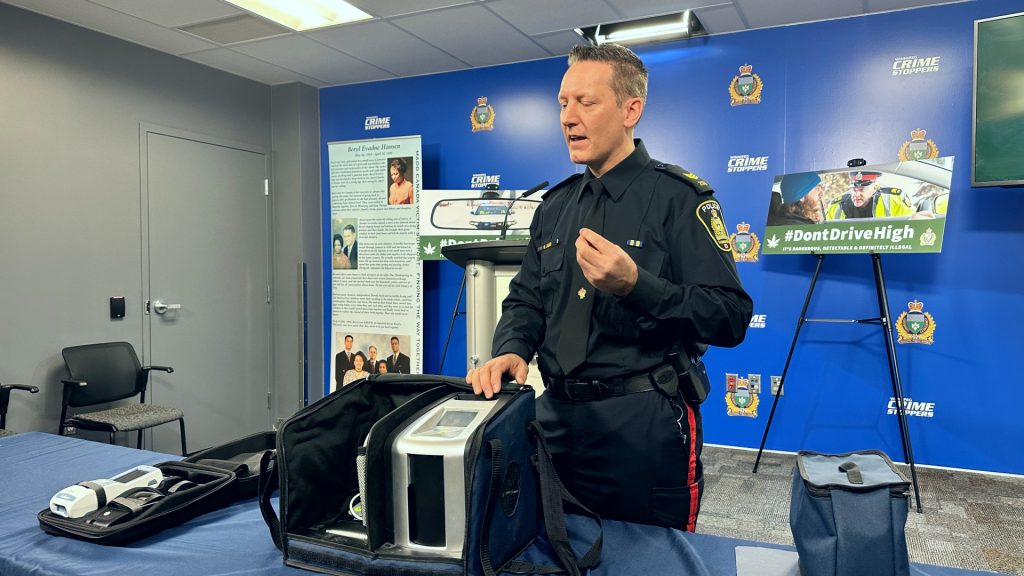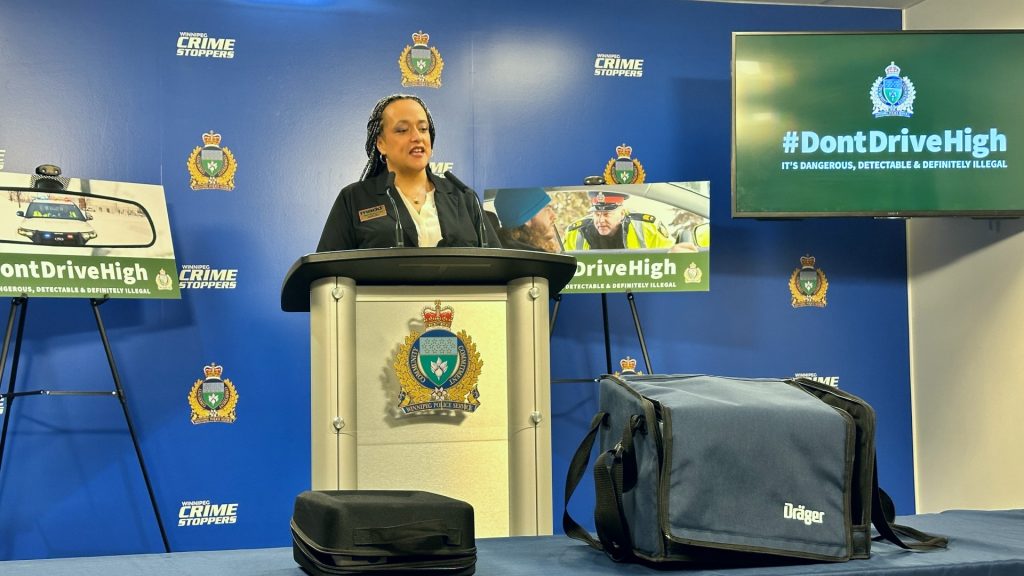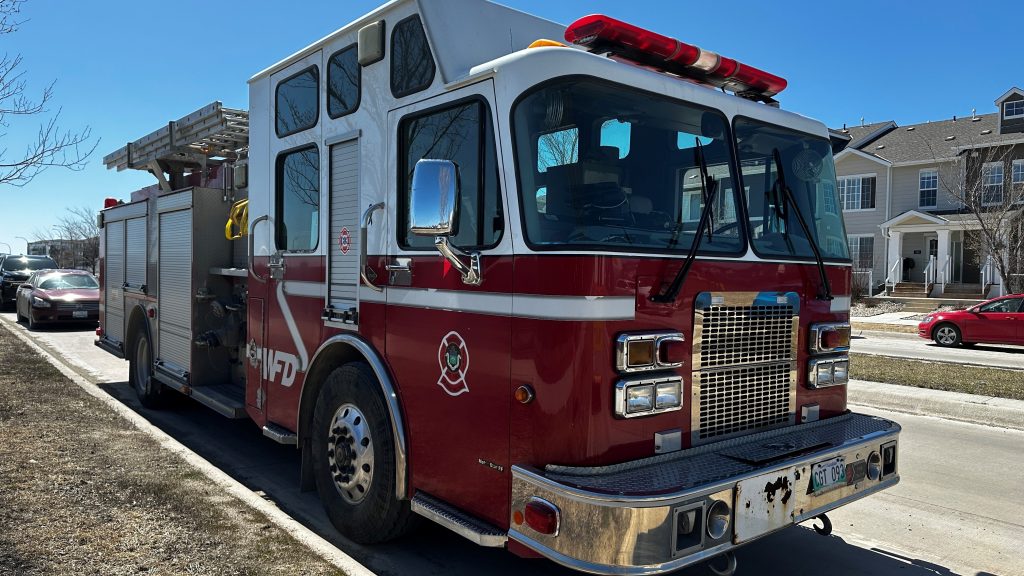Winnipeg police launch cannabis education program to reduce drug-impaired driving
Posted February 1, 2024 3:53 pm.
Last Updated February 2, 2024 10:33 am.
“Everyone is very used to hearing ‘don’t drink and drive’. We have to have that same effect when we talk about, don’t drive while high,” said Patrol Sergeant Stephane Fontaine with the Winnipeg Police Service.
Since cannabis was legalized in 2018, Winnipeg Police say more people have been found driving under the influence. Officers are hoping to reduce those numbers through its new education program, #DontDriveHigh.
“If you do the math on that, we’re looking at almost 50 per cent. So one in two drivers that are stopped have consumed cannabis,” said Superintendent Brian Miln.
Winnipeg police launched its campaign Thursday, which sees billboards, videos, and social media posts educating the public on the dangers of consuming cannabis and driving.
“The myth that cannabis makes me a better driver is simply wrong,” said Fontaine.

RELATED: Winnipeg police begin project aimed at cracking down on drug-impaired driving
Fontaine has heard it all. People say cannabis helps them drive, but tests prove it lowers the capacity for multitasking. Fontaine says he’s also heard police have no way of proving when people are under the influence, but WPS uses two different oral fluid swab kits that detect THC in someone’s oral cavity: 7 SoToxa Mobile Test System machines and 10 of the Dräger DrugTest 5000.
Police have partnered with federal and provincial governments and Mothers Against Drunk Driving Canada (MADD) for the campaign, as well as an enforcement project that focuses on finding drivers under the influence of cannabis and other drugs.
Since it began last month on January 16th, 113 traffic stops have been conducted, including 48 swab tests with 23 testing positive for cannabis.
“I want to urge every member of the public to make a commitment to never drive impaired,” said Tanya Hansen Pratt, MADD Canada’s President.
Hansen Pratt, says people need to remember consequences don’t end at the site of the accident. She knows this first-hand as her mother, Beryl Hansen, was killed by an impaired driver.
“My mom was out for a walk south of Portage La Prairie on April 20th, 1999, which was a Tuesday morning. She went on that walk every day. She had just retired early and went for a morning walk as she always did and she was struck behind by an impaired driver travelling an excess of 150km an hour. She died instantly. That was that breaking point in our lives, where we have the before and the after. This is the after that we have to deal with,” said Pratt.

“Don’t drive high. It’s dangerous, detectable and definitely illegal,” said Fontaine.








